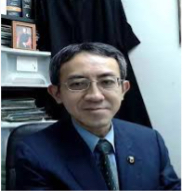In order to evaluate the latest foreign policy moves of the President of the United States (USA) Donald Trump, the Ankara Crisis and Policy Research Center (ANKASAM) presents to your attention the interview conducted with Hong Kong-based Guiguzi Traditional Chinese Strategy Learning President Honorary Prof. Hei Sing Tso
1. How do you evaluate the impact of Trump’s “America First” approach on US-EU security relations?
According to Trump, European security has not been completely ignored, but Europeans should only pay for it and share the costs with the US. Trump wants a stable Europe only if the European economy can serve American interests. However, if the cost-sharing within NATO is not fair, Trump will reduce America’s role in this alliance and turn to alternative security arrangements. He may prefer to use bilateral approaches with individual European countries for security purposes.
2. How will Trump and Putin’s decision to halt attacks on energy infrastructure for 30 days affect Europe’s energy security and political stability?
Even though not a single country in Europe has been invited to the peace talks, I think that both the US and Russia merely want to inform European countries, as superpowers, that they are interested in Europe’s interests. This is a diplomatic gesture and will at least create a psychological impact on the European public. This will also gain support from conservative parties focused on energy security and thus reduce protests coming from Europeans.
3. How do you see the potential impact of the latest negotiations between Trump and Putin on international relations?
Trump does not merely want to resolve the Ukraine conflict. He seeks to develop a more direct strategic cooperation with Putin by excluding other stakeholders, including his European partners. He also wants to address other global issues such as the Middle East and even North Korea. However, this is Trump’s own intention. I do not think Putin will fully agree with this, and Putin will place more importance on stakeholders from Eurasia and the Global South. Therefore, the Ukraine issue may be resolved relatively faster, but progress on other geopolitical issues will still be carefully evaluated by the Kremlin.

